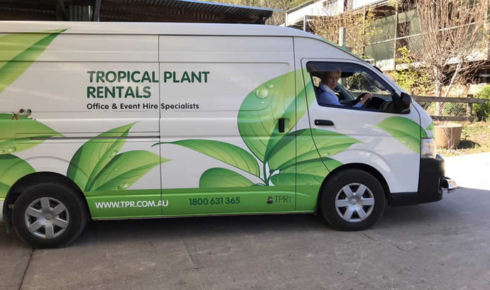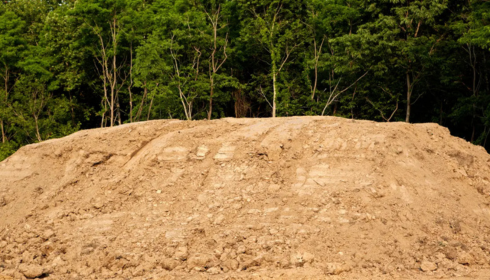Discover how Tropical Plant Rentals transformed the urban landscapes of Adamstown to New Lambton with their innovative green solutions. Through the strategic placement of lush tropical plants, this article explores the positive impact on the environment and community well-being, providing a refreshing oasis in the heart of the city.
Tropical Plant Rentals has effectively enhanced urban environments by seamlessly integrating tropical greenery into bustling cityscapes. This initiative not only beautifies but also improves air quality, reduces noise pollution, and fosters mental well-being among residents. By weaving nature into urban life, they redefine city living, creating serene, sustainable spaces that benefit everyone.
Introduction to Tropical Plant Rentals
Tropical Plant Rentals offers a unique and innovative solution for enhancing any indoor space with the beauty and vibrancy of tropical plants. Our mission is to provide high-quality, lush tropical plants for short-term rentals to businesses, events, and individuals looking to create a green oasis in their space without the commitment of purchasing and maintaining plants long-term. With an extensive selection of tropical plants ranging from palms and ferns to exotic flowering plants, Tropical Plant Rentals can transform any environment into a lush and inviting paradise. Our team of experienced horticulturists and designers work closely with clients to create custom plant rental packages that suit their specific needs and preferences, ensuring that every space is transformed into a vibrant and refreshing tropical escape.
Whether you are looking to add a touch of nature to a corporate event, office space, retail store, or private residence, Tropical Plant Rentals offers a convenient and cost-effective solution to elevate your space with the beauty of tropical plants. Our rental process is simple and hassle-free, with delivery, installation, and maintenance services included to ensure that your plants remain healthy and thriving throughout the rental period. By choosing Tropical Plant Rentals, you can enjoy the benefits of a green and inviting environment without the stress and commitment of plant ownership, making it easy to create a tropical oasis wherever you are.
The Environmental Impact of Indoor Plants
Indoor plants have a significant positive impact on the environment due to their ability to purify the air and reduce indoor pollution. Plants absorb carbon dioxide during photosynthesis and release oxygen, improving air quality in indoor spaces. They also remove harmful volatile organic compounds (VOCs) such as benzene, formaldehyde, and trichloroethylene from the air, which are commonly found in indoor environments due to building materials, furniture, and cleaning products. By reducing the levels of these pollutants, indoor plants help create a healthier and more sustainable indoor environment for occupants.
Moreover, indoor plants can contribute to energy savings and reduce the carbon footprint of buildings. Plants help regulate indoor temperatures by providing shade, reducing the need for air conditioning in the summer and heating in the winter. This natural cooling and insulation effect can lead to lower energy consumption and greenhouse gas emissions associated with heating and cooling systems. Additionally, indoor plants can increase humidity levels in dry indoor environments, which can reduce the need for humidifiers and save energy. Overall, incorporating indoor plants into indoor spaces can have a positive environmental impact by improving air quality, reducing energy consumption, and promoting sustainability.
Tropical Plant Rentals Bathurst offers a variety of indoor plants that enhance energy efficiency and environmental sustainability in buildings. By choosing the right indoor plants, businesses and homeowners can enjoy reduced heating and cooling costs while supporting a healthier indoor environment, making spaces more eco-friendly and comfortable.
Benefits of Greening Urban Spaces
Greening urban spaces provides numerous benefits to both the environment and the community. One of the key advantages is the improvement of air quality. Trees and green spaces help to absorb pollutants such as carbon dioxide, sulfur dioxide, and nitrogen oxides, which helps to reduce air pollution levels in cities. This can lead to better respiratory health for residents and a decrease in the prevalence of conditions such as asthma and other respiratory diseases. Additionally, green spaces help to mitigate the urban heat island effect by providing shade and cooling effects, which can reduce energy consumption for air conditioning in buildings and lower overall temperatures in urban areas.
Furthermore, greening urban spaces can have a positive impact on mental health and well-being. Studies have shown that access to green spaces and nature can reduce stress, anxiety, and depression, as well as improve overall mood and cognitive function. Urban green spaces provide opportunities for relaxation, exercise, and socialization, which can contribute to a sense of community and belonging. Additionally, green spaces can enhance biodiversity in cities, providing habitats for wildlife and contributing to the overall ecological balance. Overall, greening urban spaces not only benefits the environment but also improves the quality of life for residents in urban areas.
Transforming Adamstown with Tropical Plants
Transforming Adamstown with tropical plants is a project aimed at revitalizing the urban landscape of this bustling city by incorporating lush greenery and vibrant flora native to tropical regions. By strategically planting a variety of tropical plants such as palm trees, orchids, and bromeliads in public spaces, streetscapes, and parks, Adamstown can undergo a stunning transformation that not only enhances the aesthetic appeal of the city but also improves the overall quality of life for its residents. The lush green foliage and colorful blooms of tropical plants can create a soothing and rejuvenating environment, offering a peaceful retreat from the hustle and bustle of urban life.
In addition to their aesthetic benefits, tropical plants also offer numerous environmental advantages. They can help to mitigate air pollution, reduce noise levels, and provide shade and cooling effects, thus contributing to a more sustainable and eco-friendly urban ecosystem. Furthermore, the presence of tropical plants can attract a diverse range of wildlife, such as birds and butterflies, enhancing the biodiversity of the city and creating a harmonious coexistence between nature and urban infrastructure. Overall, transforming Adamstown with tropical plants presents a unique opportunity to create a greener, more vibrant, and livable cityscape that fosters a deep connection with nature and improves the well-being of its residents.
Sustainability Practices in Plant Rental Services
Sustainability practices in plant rental services are becoming increasingly important as businesses and individuals seek to minimize their environmental impact. One key sustainability practice in plant rental services is the use of eco-friendly and biodegradable plant containers. By opting for containers made from recycled materials or natural fibers, plant rental services can reduce their carbon footprint and minimize waste sent to landfills. Additionally, the use of biodegradable containers ensures that at the end of the plant’s lifecycle, the container can break down naturally without harming the environment.
Another sustainability practice in plant rental services is the implementation of water-saving irrigation systems. By utilizing drip irrigation or other water-efficient techniques, plant rental services can minimize water wastage while ensuring that plants receive adequate hydration. This not only helps to conserve water resources but also reduces the need for frequent watering, leading to lower energy consumption. Furthermore, by choosing drought-resistant plant species for rental services, businesses can further promote sustainability by requiring less water and maintenance, thus contributing to a more sustainable and eco-friendly plant rental service industry.
Engaging the Community in Greening Initiatives
Engaging the community in greening initiatives is crucial for the success and sustainability of environmental projects. By involving local residents, businesses, and organizations in green initiatives, there is a greater sense of ownership and responsibility towards the environment. Community engagement fosters a sense of unity and collaboration, creating a shared vision for a more sustainable future. When community members are actively involved in greening initiatives, they are more likely to adopt eco-friendly practices in their daily lives, leading to a more significant impact on the environment.
Furthermore, engaging the community in green initiatives can lead to a ripple effect, inspiring others to join in and take action. By organizing community clean-up events, tree planting activities, or educational workshops, individuals become more aware of environmental issues and the importance of conservation. This increased awareness can spark a sense of activism within the community, motivating residents to advocate for more sustainable policies and practices at the local level. Ultimately, engaging the community in greening initiatives not only benefits the environment but also strengthens community bonds and fosters a culture of environmental stewardship for future generations.
Bringing Nature Indoors: Plant Rental Trends
Bringing nature indoors through plant rentals has become a popular trend in interior design and home decor. The concept of plant rentals allows individuals to enjoy the beauty of live plants in their living or working spaces without the commitment of owning and maintaining them long-term. This trend not only adds a touch of greenery to indoor spaces but also promotes a sense of well-being and connection to nature. Plant rental services offer a wide variety of plant options, from small succulents to large potted trees, allowing individuals to customize their space according to their preferences and needs. Additionally, plant rental services often include maintenance and care services, ensuring that the plants remain healthy and vibrant, making it a convenient option for those with busy lifestyles or limited gardening knowledge.
The rise of plant rental trends is also seen as a sustainable and eco-friendly alternative to purchasing new plants. By renting plants, individuals can constantly refresh their indoor spaces with new greenery without contributing to plant waste or environmental harm. Plant rental services often take back the plants once the rental period is over, ensuring that they are properly cared for and reused in other spaces. This circular approach to plant consumption aligns with the growing awareness of the importance of sustainable living practices and reducing waste. As more people seek ways to bring nature into their indoor environments, plant rentals offer a flexible and environmentally conscious solution that benefits both individuals and the planet.
From Adamstown to New Lambton: Expanding Operations
As the demand for our products and services continues to grow, we have made the strategic decision to expand our operations from Adamstown to New Lambton. This expansion will not only allow us to better serve our existing customer base but also reach new markets and clientele. By establishing a presence in New Lambton, we are positioning ourselves for further growth and success in the region. This move also aligns with our commitment to staying at the forefront of industry trends and meeting the evolving needs of our customers.
The new location in New Lambton will serve as a hub for our expanded operations, housing state-of-the-art facilities and equipment to support our growing business. This strategic decision will enable us to streamline our processes, improve efficiency, and enhance our overall service capabilities. With a larger footprint in New Lambton, we will be able to offer a wider range of products and services, as well as provide faster turnaround times for our customers. This expansion marks an exciting chapter in our company’s journey, and we are confident that it will lead to even greater opportunities for us to thrive and excel in the marketplace.
Case Study: Greening Corporate Spaces with Tropical Plants
In the case study of greening corporate spaces with tropical plants, a company sought to improve the overall ambiance and air quality within its office environment. By strategically incorporating various tropical plants throughout the workspace, they were able to create a more vibrant and inviting atmosphere for employees and visitors. The lush greenery not only added aesthetic value but also served practical purposes such as reducing stress levels, increasing productivity, and purifying the indoor air. The company recognized the positive impact of biophilic design on employee well-being and morale, leading to a more harmonious and conducive work environment.
Furthermore, the introduction of tropical plants into the corporate space helped to foster a connection to nature, which is often lacking in urban settings. Employees reported feeling more relaxed and inspired while working in an environment that closely mimicked natural surroundings. The presence of plants also helped to reduce noise levels and create designated areas for relaxation and rejuvenation. Overall, the case study demonstrated the significance of incorporating biophilic elements, such as tropical plants, into corporate spaces to enhance employee satisfaction, well-being, and overall performance.
Future Outlook for Greening Initiatives in Urban Areas
The future outlook for greening initiatives in urban areas looks promising as more cities around the world prioritize sustainability and environmental protection. With the increasing recognition of the urgent need to address climate change and improve air quality, urban greening initiatives are gaining momentum. Cities are implementing strategies such as green roofs, vertical gardens, urban forests, and green infrastructure to combat the heat island effect, reduce carbon emissions, and enhance the overall well-being of residents. These initiatives not only contribute to a healthier environment but also create more livable and attractive urban spaces. As urban populations continue to grow, the demand for green spaces will likely increase, driving further investment in urban greening projects.
Advancements in technology and innovative design solutions are also expected to play a significant role in the future of urban greening initiatives. Smart technologies, such as sensor-based irrigation systems and green building materials, can help optimize resource use and improve the efficiency of urban green spaces. Additionally, the integration of nature-based solutions into urban planning processes is becoming more common, with a focus on promoting biodiversity, water management, and sustainable land use practices. As cities become more interconnected and data-driven, there is a growing opportunity to leverage technology to monitor and evaluate the impact of greening initiatives, leading to more informed decision-making and greater success in achieving environmental goals.





